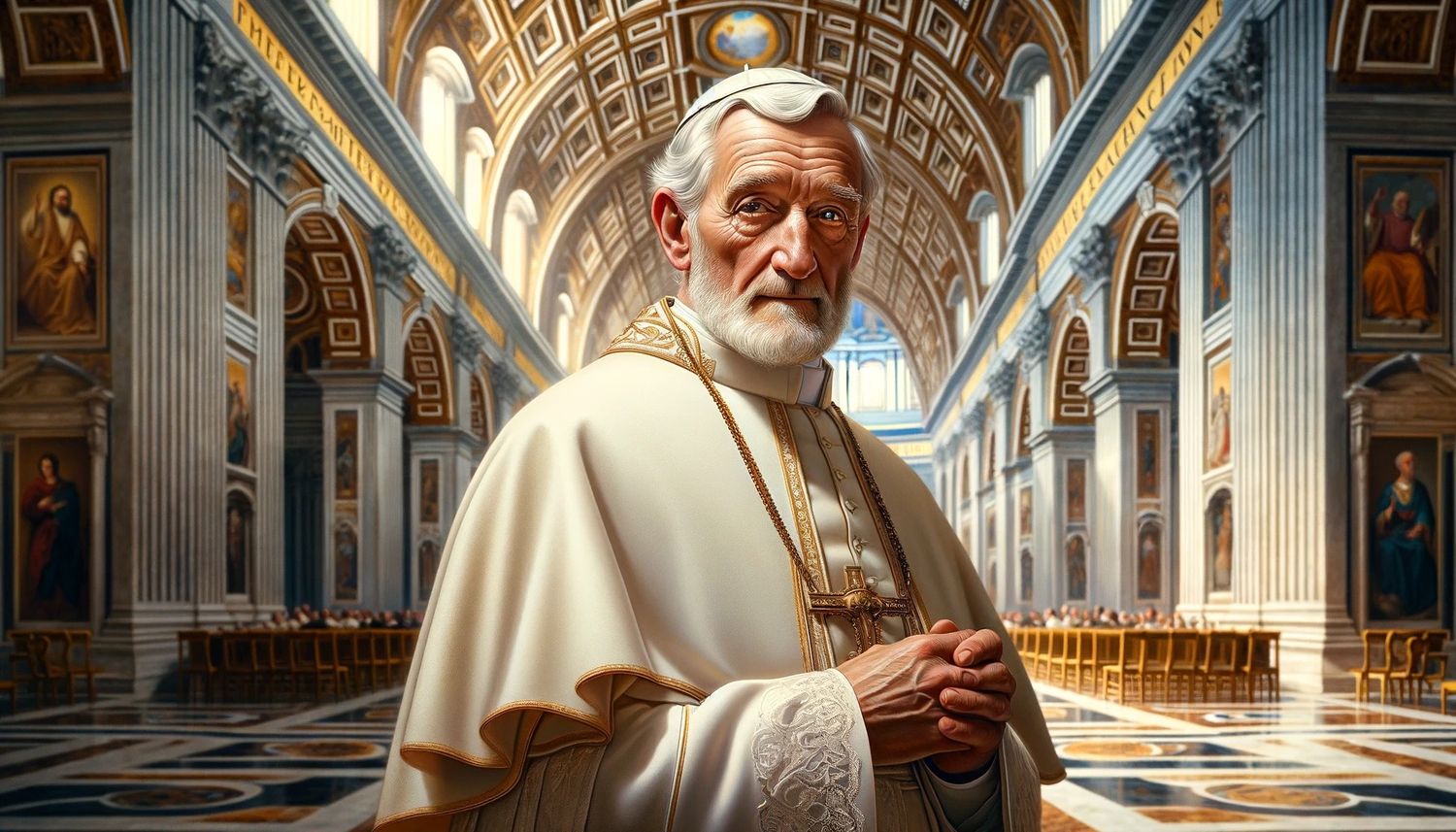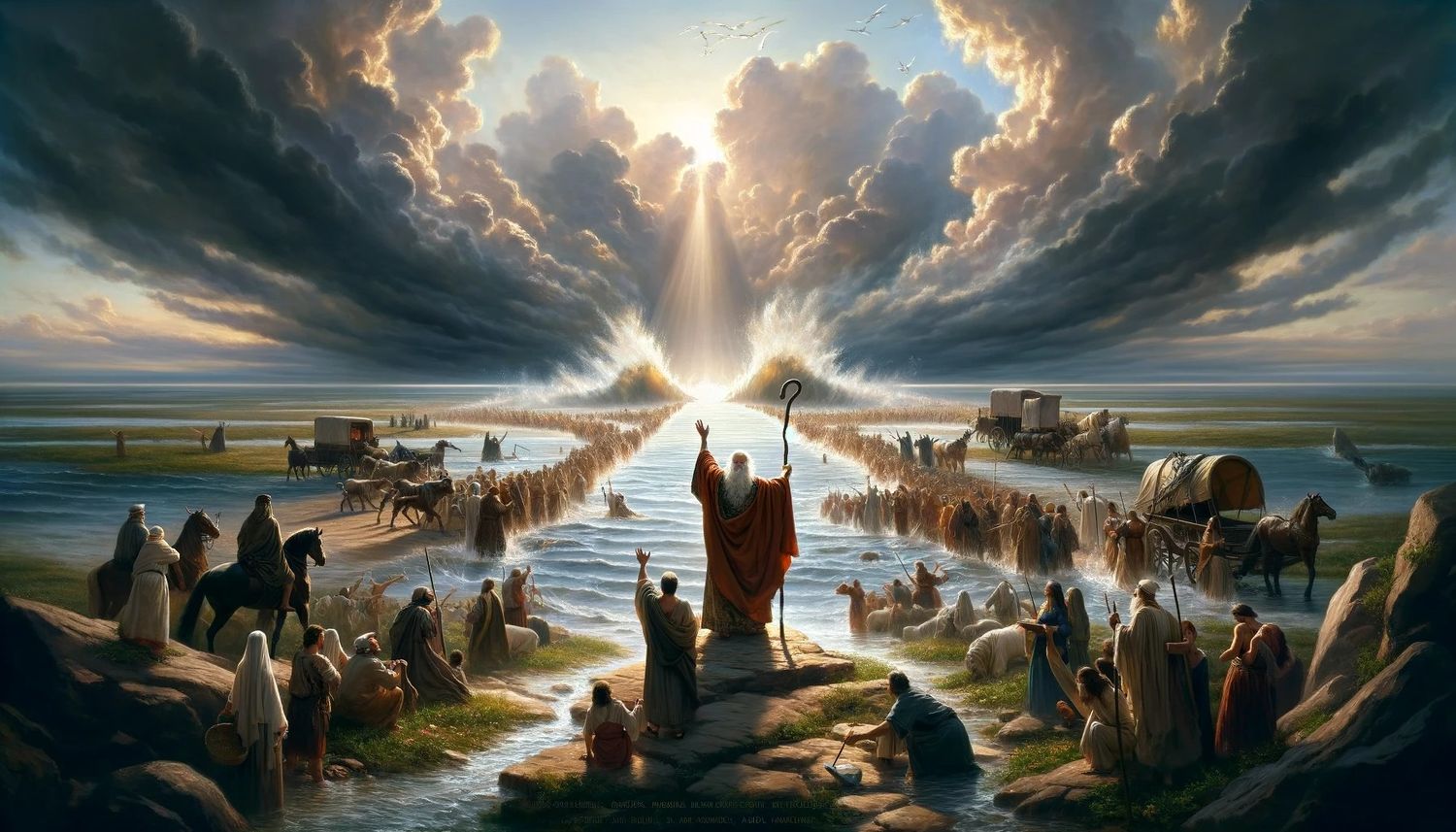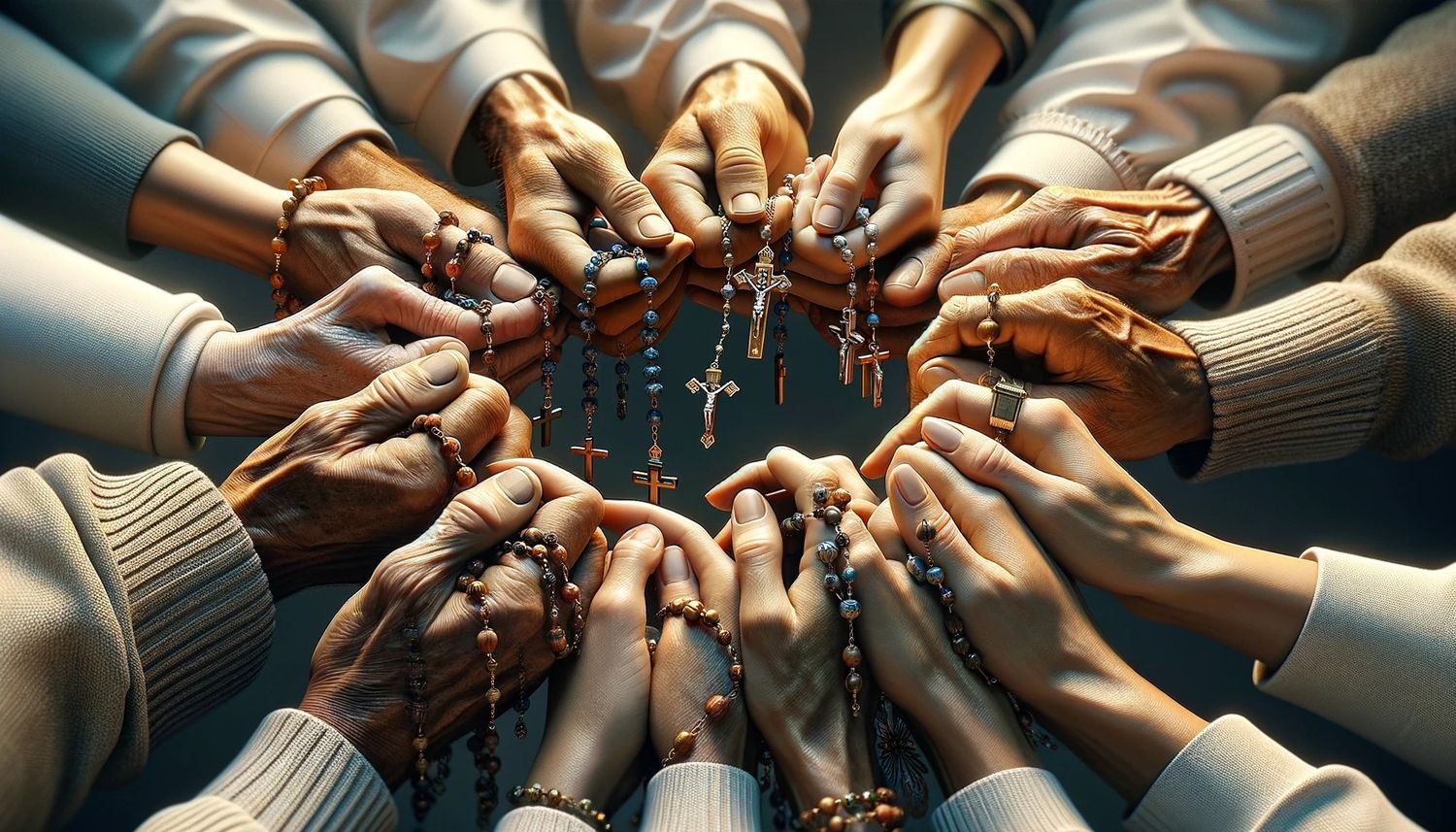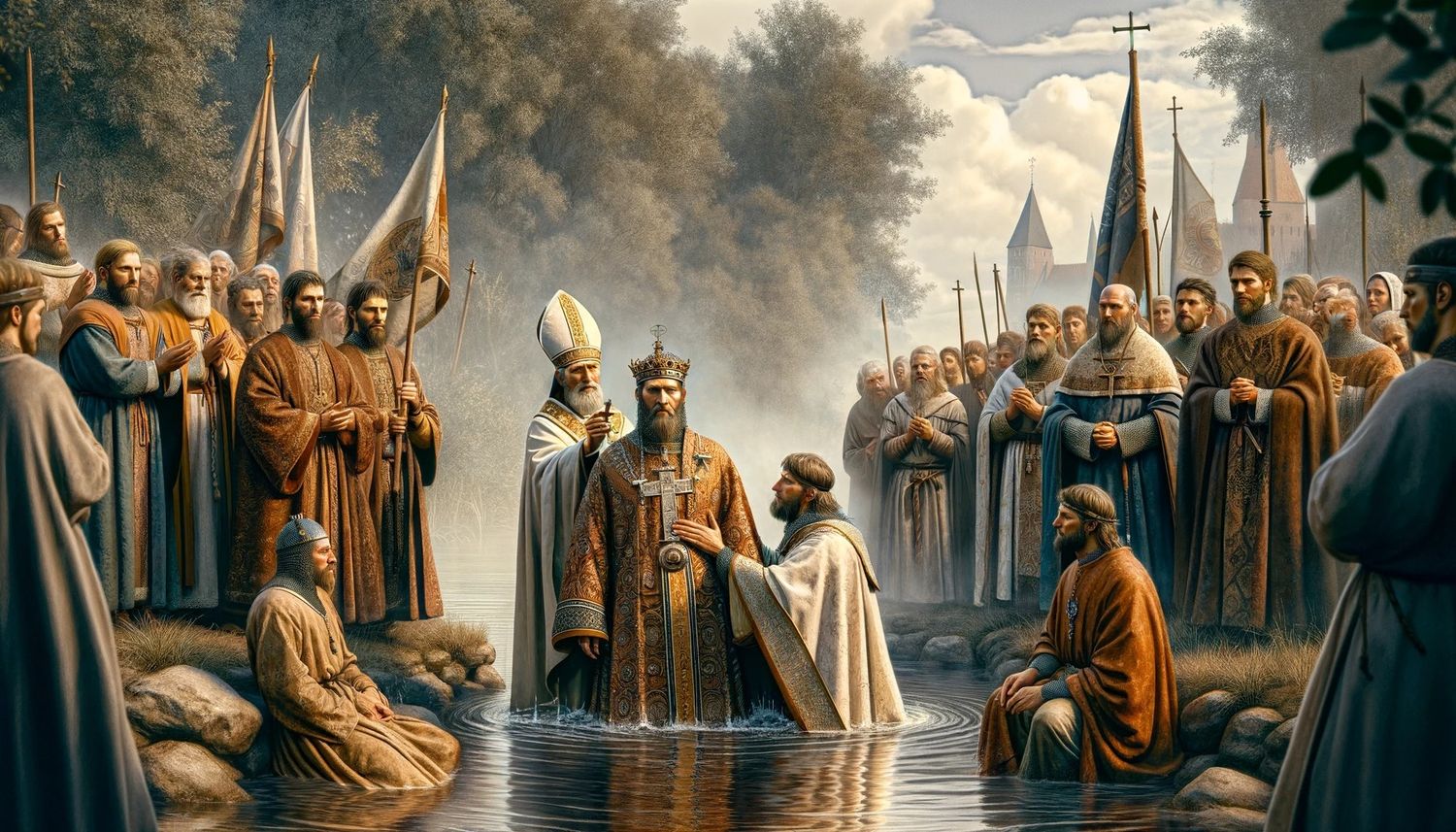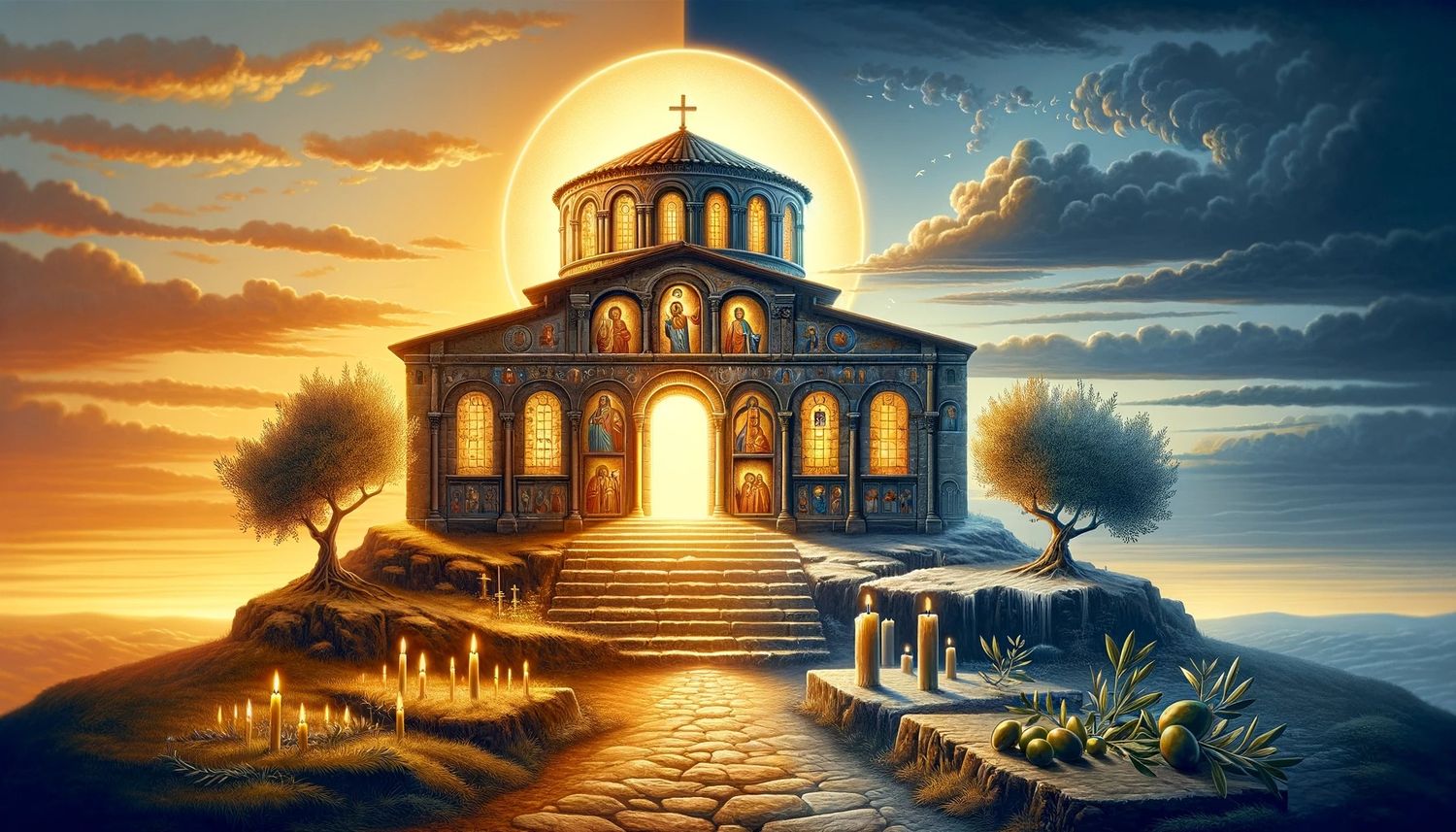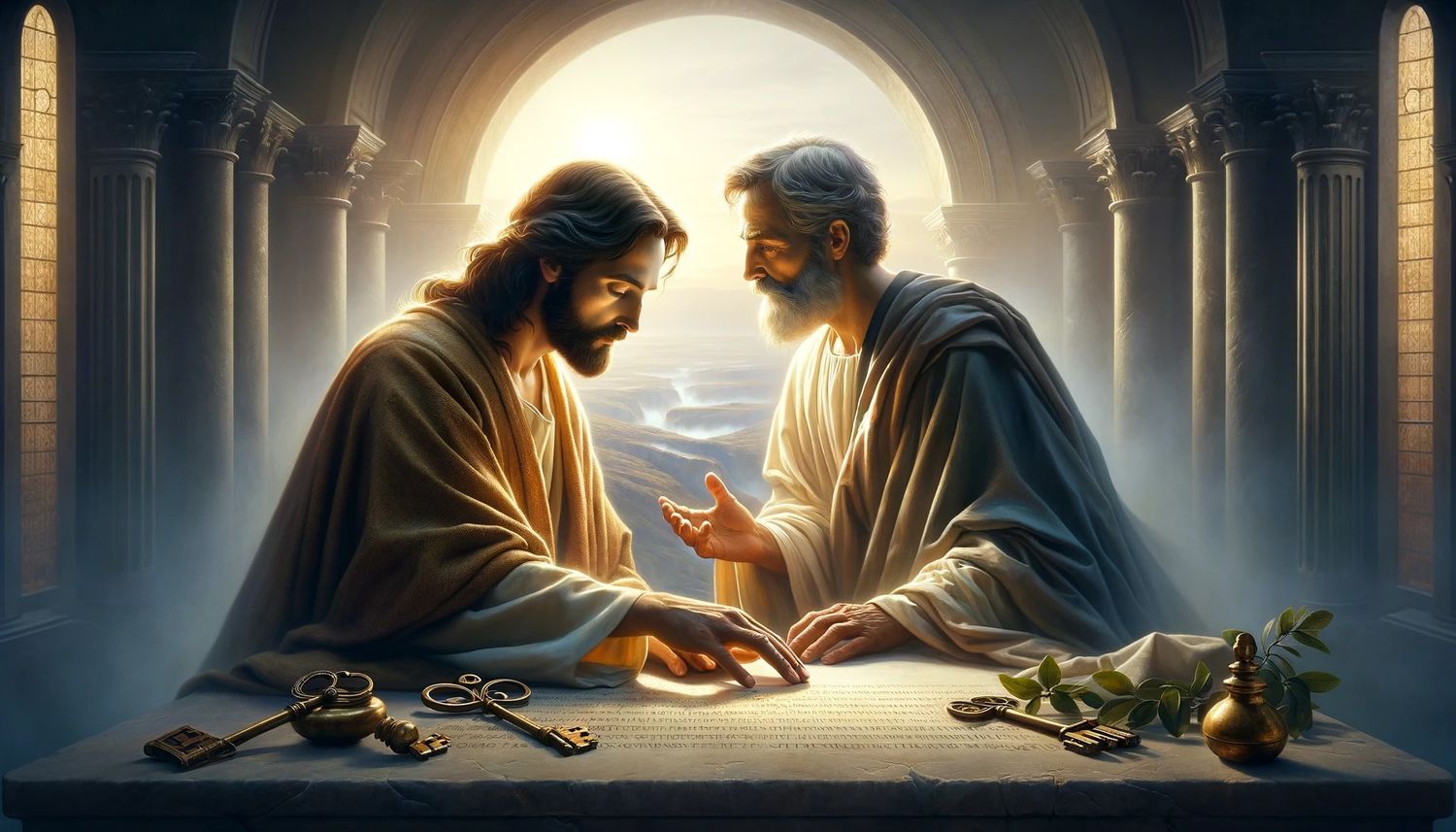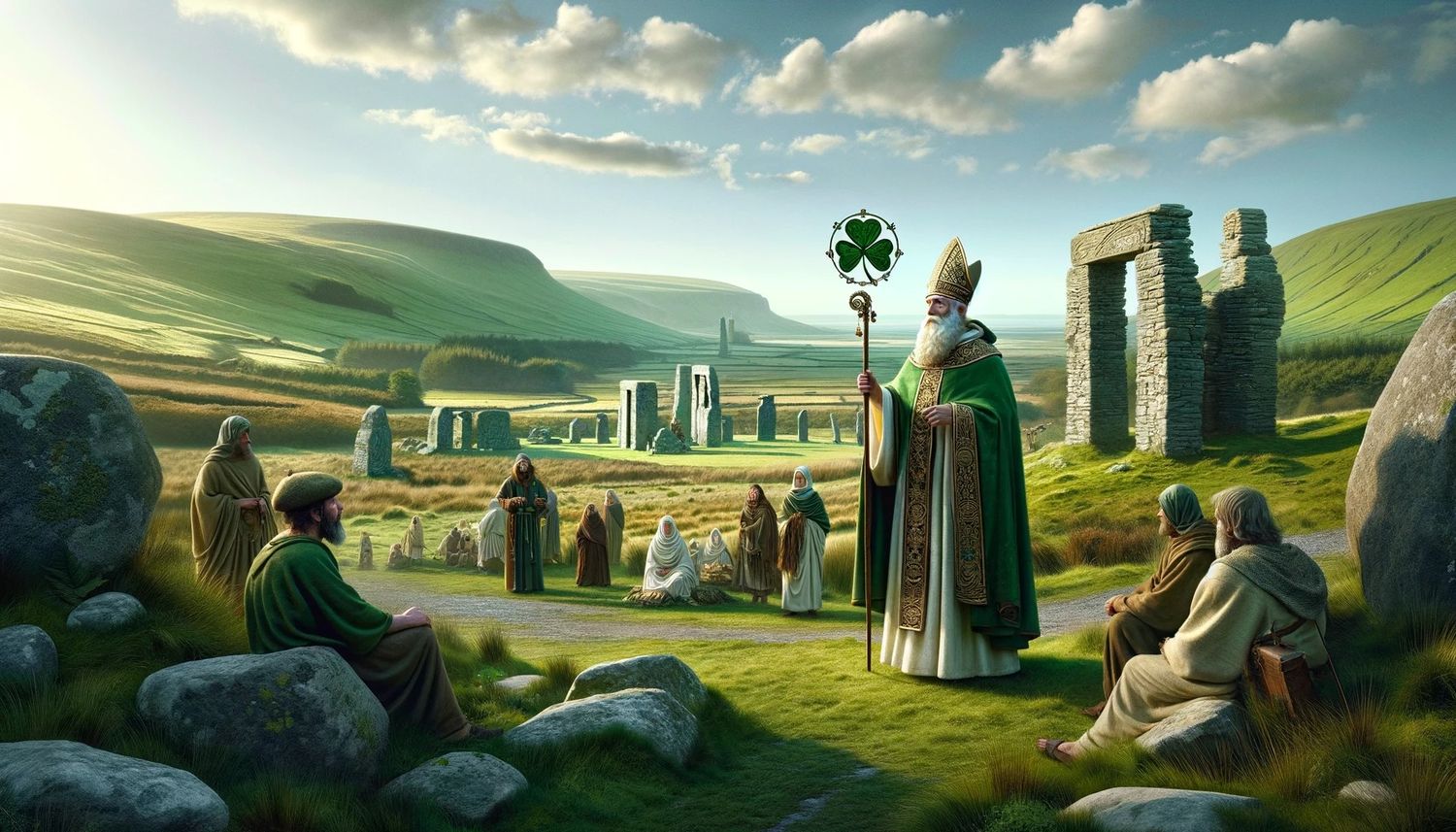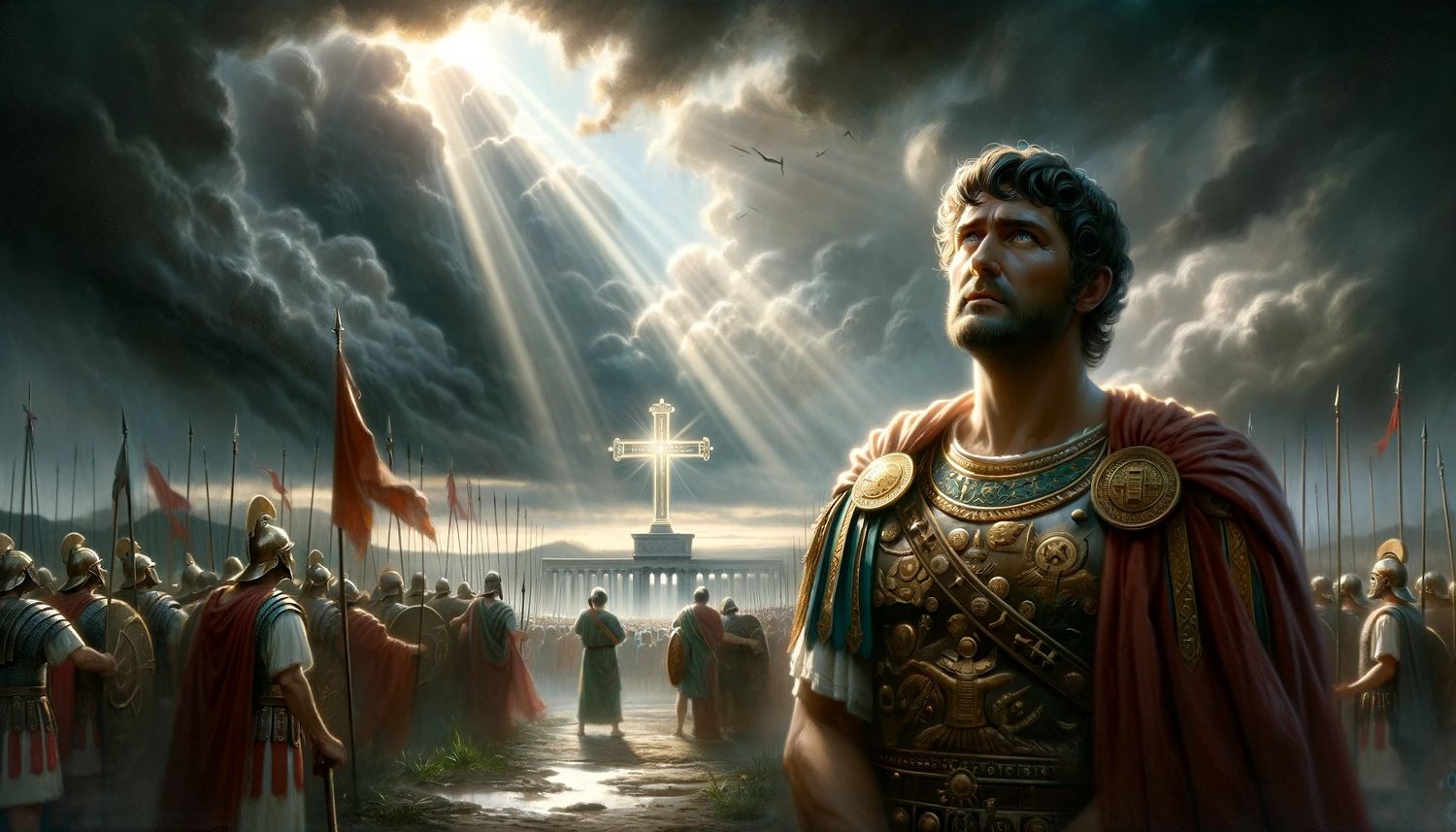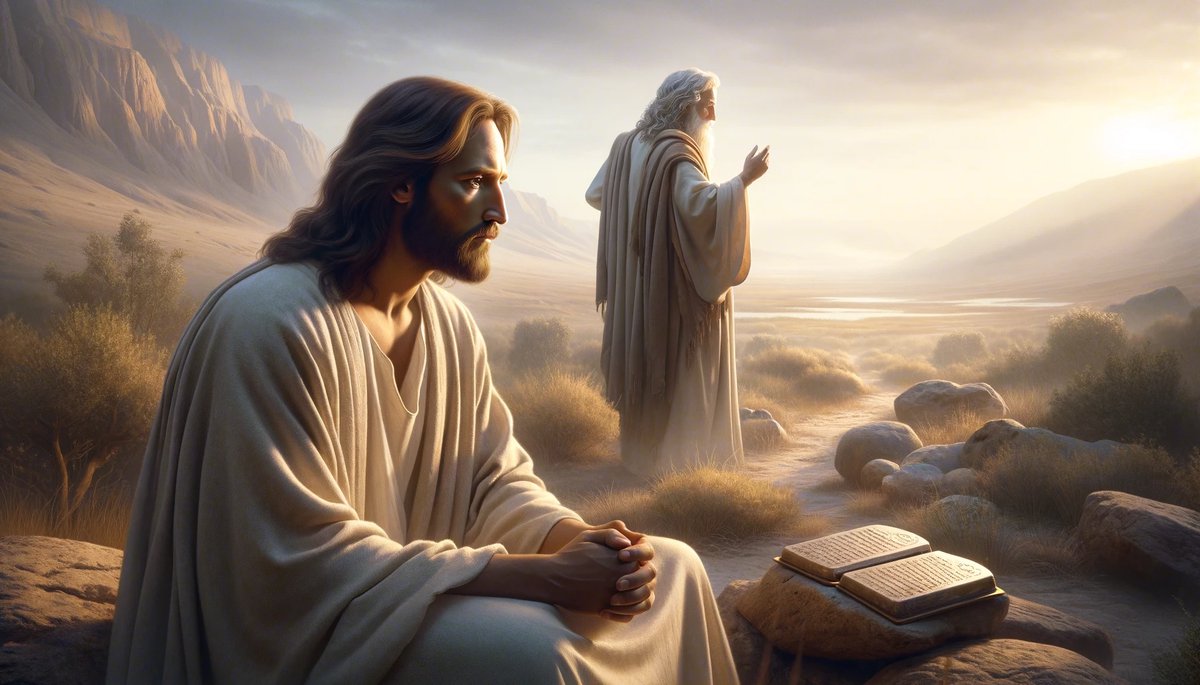Home>Theology and Spirituality>Who Is Moses In Catholicism
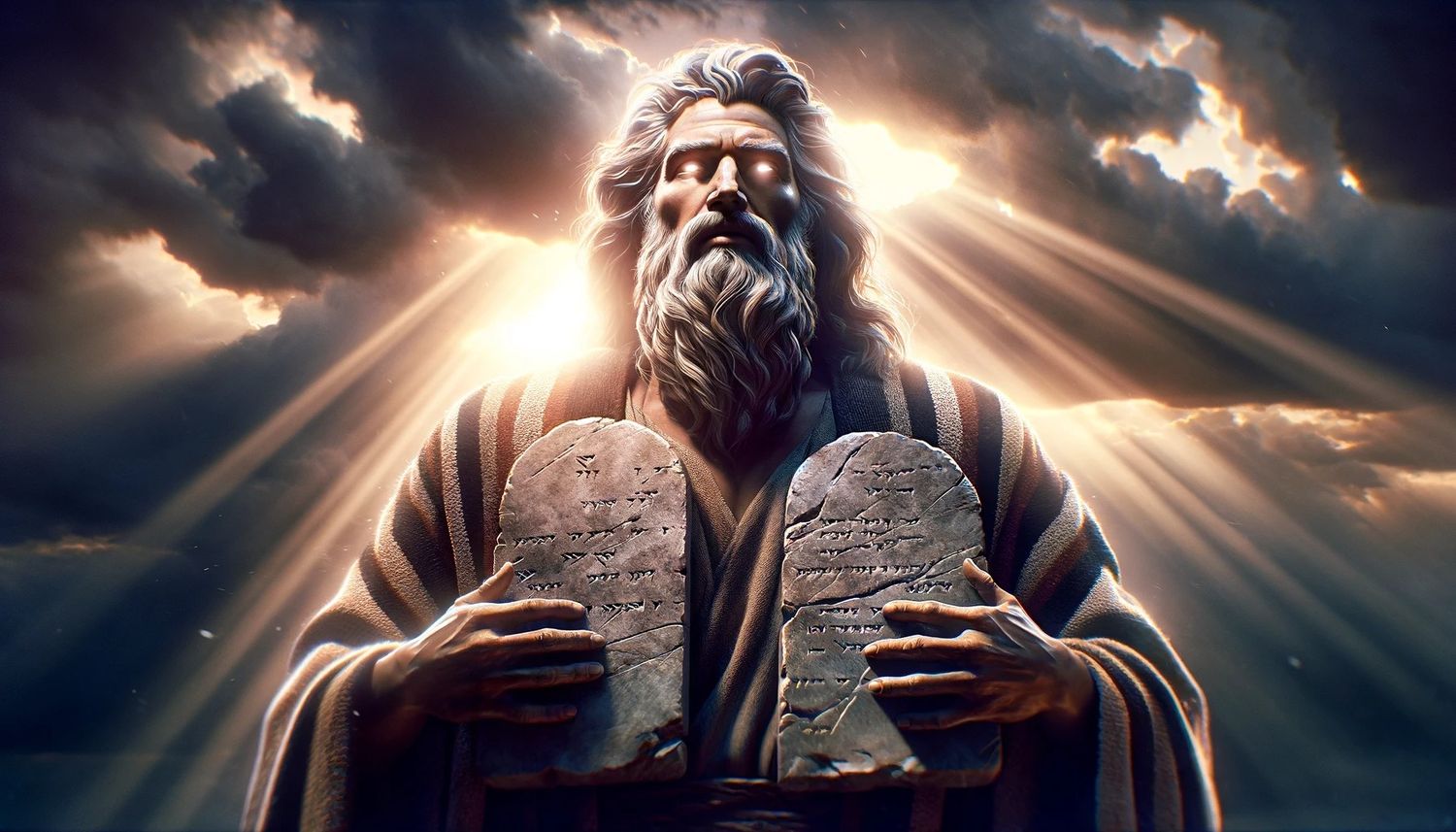

Theology and Spirituality
Who Is Moses In Catholicism
Published: February 15, 2024
Jason DeRose, Managing Editor at Christian.net, uses his expertise in religion and journalism to deepen understanding of faith's societal impacts. His editorial leadership, coupled with a strong academic background, enriches the platform’s diverse content, earning him recognition in both journalism and religious circles.
Discover the significance of Moses in Catholic theology and spirituality. Explore the role and impact of Moses in the Catholic faith.
(Many of the links in this article redirect to a specific reviewed product. Your purchase of these products through affiliate links helps to generate commission for Christian.net, at no extra cost. Learn more)
Table of Contents
Introduction
Moses, a towering figure in religious history, holds a significant place in Catholicism. His life and teachings have profoundly influenced the faith and spirituality of countless believers. From his extraordinary role in the Old Testament to his enduring presence in Catholic tradition, art, and liturgy, Moses continues to inspire and guide the faithful on their spiritual journey.
In this comprehensive exploration, we will delve into the multifaceted aspects of Moses in Catholicism, shedding light on his life, his pivotal role in the Old Testament, his revered status in Catholic tradition, and his portrayal in art and liturgy. By understanding the profound impact of Moses on the Catholic faith, we can gain valuable insights into the enduring legacy of this remarkable biblical figure and its relevance in contemporary spiritual practices.
Moses' story is one of resilience, faith, and unwavering commitment to God's will. His journey from the banks of the Nile to the summit of Mount Sinai is a testament to the transformative power of divine guidance and the indomitable human spirit. As we embark on this exploration, we will unravel the layers of significance that Moses holds within the rich tapestry of Catholic theology and spirituality.
Join us on this enlightening journey as we uncover the timeless wisdom and spiritual depth embodied in the figure of Moses, and discover how his legacy continues to shape the beliefs and practices of Catholics around the world.
Read more: Who Created Catholicism
The Life of Moses
Moses, whose name means "drawn out," was born during a time of great peril for the Israelites. His extraordinary life began with a miraculous deliverance, as his mother, Jochebed, courageously set him afloat in a reed basket on the Nile River to escape the decree of Pharaoh, who sought to exterminate all Hebrew male infants. Providentially, Pharaoh's daughter discovered the infant Moses and raised him as her own, thus preserving his life and setting the stage for his remarkable destiny.
As Moses matured, he became deeply aware of his Hebrew heritage and felt a profound connection to his oppressed brethren. This awareness led to a pivotal moment when, witnessing an Egyptian taskmaster mistreating a Hebrew slave, Moses intervened and inadvertently killed the oppressor. Fearing retribution, he fled to the land of Midian, where he encountered the priest Jethro and married his daughter, Zipporah.
During his time in Midian, Moses experienced a transformative encounter with the divine. While tending to Jethro's flock, he witnessed a burning bush that was not consumed by the flames. This awe-inspiring sight marked the beginning of his divine calling, as God spoke to him from the midst of the fire, commissioning him to lead the Israelites out of bondage in Egypt.
Moses' journey as a reluctant yet obedient leader unfolded through a series of miraculous events, including the ten plagues that befell Egypt, the parting of the Red Sea, and the reception of the Ten Commandments on Mount Sinai. His unwavering faith and steadfast commitment to God's guidance empowered him to shepherd the Israelites through the wilderness, despite numerous challenges and moments of doubt.
Ultimately, Moses' earthly journey concluded as he beheld the Promised Land from Mount Nebo, having fulfilled his mission of leading the Israelites to the threshold of their inheritance. His legacy as a prophet, lawgiver, and liberator endures as a testament to the enduring power of faith, resilience, and divine providence.
Moses' life serves as a profound example of courage in the face of adversity, unwavering faith in God's promises, and the transformative impact of answering a divine calling. His legacy continues to inspire and guide believers, transcending time and culture to impart timeless lessons of spiritual fortitude and unwavering commitment to the divine will.
Moses in the Old Testament
Moses' presence in the Old Testament is pervasive and profound, shaping the narrative of Israel's liberation from bondage and the establishment of divine law. His pivotal role as the leader of the Israelites during their exodus from Egypt and the subsequent journey through the wilderness is intricately woven into the fabric of Old Testament history and theology.
The book of Exodus serves as the primary account of Moses' extraordinary life and his central role in the liberation of the Israelites from the oppressive rule of Pharaoh. The narrative unfolds with gripping intensity as Moses, initially hesitant and uncertain of his abilities, becomes the instrument of God's deliverance for his people. The ten plagues unleashed upon Egypt, culminating in the dramatic parting of the Red Sea, stand as enduring symbols of divine intervention and the fulfillment of God's promises through Moses' unwavering obedience.
Moreover, Moses' encounter with God on Mount Sinai is a defining moment in the Old Testament, as it marks the reception of the Ten Commandments and the establishment of the Mosaic Law. This foundational covenant between God and the Israelites, mediated by Moses, laid the groundwork for ethical and moral conduct, shaping the religious identity and communal life of the people of Israel for generations to come.
The narrative of Moses in the Old Testament is replete with instances of divine revelation, miraculous interventions, and the complexities of human leadership. His interactions with God, the challenges of leading a rebellious and often faithless community, and his unwavering commitment to fulfilling God's commands exemplify the multifaceted dimensions of his character and calling.
Moses' presence reverberates throughout the Old Testament, extending beyond the book of Exodus to influence the prophetic writings, the Psalms, and the historical accounts of Israel's monarchy and subsequent exile. His legacy as a prophet, lawgiver, and liberator remains a cornerstone of Old Testament theology, serving as a testament to the enduring impact of his life and teachings on the faith and identity of the people of Israel.
In essence, Moses' significance in the Old Testament transcends mere historical documentation; it embodies the profound intertwining of divine purpose and human agency, shaping the destiny of a nation and laying the groundwork for the redemptive narrative that unfolds in subsequent biblical texts.
Moses in Catholic Tradition
Moses holds a revered position in Catholic tradition, embodying the archetype of the faithful servant of God and the embodiment of divine guidance. His legacy permeates the theological, liturgical, and spiritual dimensions of Catholicism, serving as a source of inspiration and guidance for believers throughout the ages.
In Catholic tradition, Moses is venerated as a prophet, lawgiver, and intercessor, whose exemplary life and unwavering commitment to God's will serve as a model for spiritual devotion and leadership. His role as the mediator of the Mosaic Law and the conduit of divine revelation underscores his significance as a foundational figure in the Judeo-Christian heritage.
The Catholic Church reveres Moses as a preeminent exemplar of faith and obedience, highlighting his pivotal role in the establishment of the Old Covenant and the preservation of the Israelite identity. His steadfast leadership during the exodus from Egypt and his reception of the divine commandments on Mount Sinai are commemorated and celebrated within the rich tapestry of Catholic tradition, underscoring the enduring relevance of his teachings and example.
Moreover, Moses' presence in Catholic tradition extends beyond historical veneration, permeating the spiritual consciousness of believers through his portrayal in liturgical practices, devotional art, and theological reflection. His image as the lawgiver and liberator is invoked in liturgical readings, prayers, and hymns, serving as a constant reminder of God's faithfulness and the call to righteous living.
The figure of Moses also features prominently in Catholic moral and ethical teachings, as the principles enshrined in the Ten Commandments continue to inform the moral conscience and social teachings of the Church. His legacy as a champion of justice, compassion, and fidelity to God's commandments resonates deeply within the moral framework of Catholic tradition, inspiring believers to uphold the values of righteousness and social responsibility.
In essence, Moses' enduring presence in Catholic tradition serves as a testament to the timeless relevance of his life and teachings, offering a profound source of spiritual wisdom and moral guidance for the faithful. His legacy continues to shape the collective consciousness of the Catholic faithful, inspiring them to emulate his unwavering faith, commitment to justice, and dedication to God's commandments in their daily lives.
Moses in Catholic Art and Liturgy
Moses' profound influence extends beyond theological and historical realms into the rich tapestry of Catholic art and liturgy. Throughout centuries of artistic expression and liturgical practice, Moses has been a central figure, depicted in various forms that capture the essence of his spiritual significance and enduring legacy.
In Catholic art, Moses is often portrayed in a manner that reflects his dual role as a lawgiver and prophet. Iconic representations depict him holding the tablets of the Ten Commandments, symbolizing his pivotal role in delivering God's divine law to the Israelites. These artistic renditions emphasize the solemnity and reverence associated with the Mosaic Law, underscoring its enduring relevance within the moral and ethical framework of Catholic tradition.
Furthermore, Moses' portrayal in art transcends mere visual representation; it serves as a powerful symbol of divine guidance, moral authority, and the transformative power of faith. The iconic image of Moses parting the Red Sea, leading the Israelites to freedom, has been immortalized in countless artistic masterpieces, evoking the awe-inspiring spectacle of God's miraculous intervention and the triumph of faith over adversity.
In the realm of liturgy, Moses' presence is palpable in the readings, prayers, and rituals that commemorate key events from his life and the exodus of the Israelites. The scriptural accounts of Moses' encounters with God, the deliverance from bondage, and the reception of the Ten Commandments are woven into the fabric of Catholic liturgical celebrations, enriching the spiritual experience of the faithful.
Moreover, the figure of Moses is invoked in liturgical hymns and chants, resonating with the themes of liberation, divine guidance, and the enduring covenant between God and His people. The commemoration of key moments from Moses' life, such as the Passover and the Feast of the Ten Commandments, underscores the integral role he plays in shaping the liturgical calendar and the spiritual consciousness of the Catholic community.
In essence, Moses' presence in Catholic art and liturgy serves as a vibrant testament to his enduring significance within the faith tradition. Through artistic expression and liturgical commemoration, believers are invited to immerse themselves in the timeless narrative of Moses' life, drawing inspiration from his unwavering faith, divine calling, and transformative impact on the spiritual heritage of Catholicism.
Read more: Who Brought Catholicism To Japan
The Legacy of Moses in Catholicism
Moses' enduring legacy in Catholicism transcends the boundaries of time and culture, leaving an indelible imprint on the theological, spiritual, and moral fabric of the faith tradition. His profound influence continues to shape the beliefs, practices, and collective consciousness of Catholics around the world, offering a source of timeless wisdom and spiritual guidance.
At the heart of Moses' legacy in Catholicism lies the enduring relevance of his teachings and example. The moral and ethical principles encapsulated in the Ten Commandments, received by Moses on Mount Sinai, form the cornerstone of Catholic moral theology and serve as a guiding light for believers navigating the complexities of contemporary life. The enduring relevance of these divine commandments underscores the timeless wisdom inherent in Moses' role as the lawgiver, emphasizing the enduring significance of his legacy in shaping the moral conscience of the faithful.
Furthermore, Moses' unwavering faith and commitment to God's will serve as a source of inspiration for Catholics seeking to deepen their spiritual journey. His transformative encounter with the divine, his steadfast leadership during the exodus from Egypt, and his unyielding dedication to fulfilling God's commands exemplify the virtues of resilience, faith, and obedience. As such, Moses' legacy continues to inspire believers to emulate his unwavering commitment to God's will, fostering a deeper sense of spiritual fortitude and devotion within the Catholic community.
Moreover, Moses' legacy in Catholicism extends beyond theological and moral dimensions, permeating the spiritual consciousness of believers through liturgical commemorations and devotional practices. The annual observance of key events from Moses' life, such as the Passover and the Feast of the Ten Commandments, serves as a poignant reminder of his enduring impact on the faith tradition. These liturgical celebrations provide opportunities for believers to immerse themselves in the timeless narrative of Moses' life, drawing inspiration from his unwavering faith, divine calling, and transformative impact on the spiritual heritage of Catholicism.
In essence, the legacy of Moses in Catholicism stands as a testament to the enduring power of faith, divine guidance, and moral integrity. His life and teachings continue to resonate with believers, offering a profound source of spiritual wisdom and moral guidance that transcends the boundaries of time and culture, enriching the spiritual journey of Catholics and shaping the collective identity of the faith tradition.
